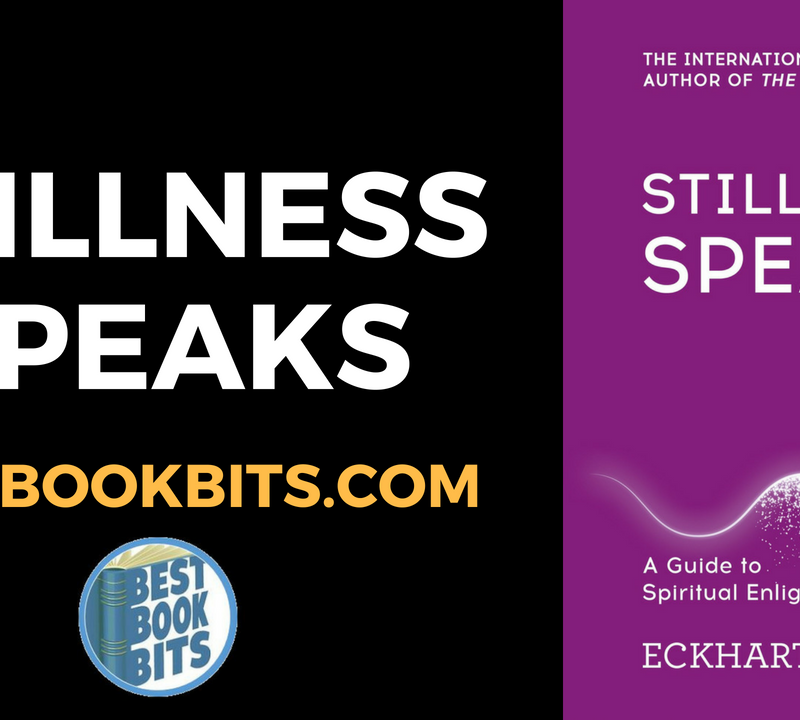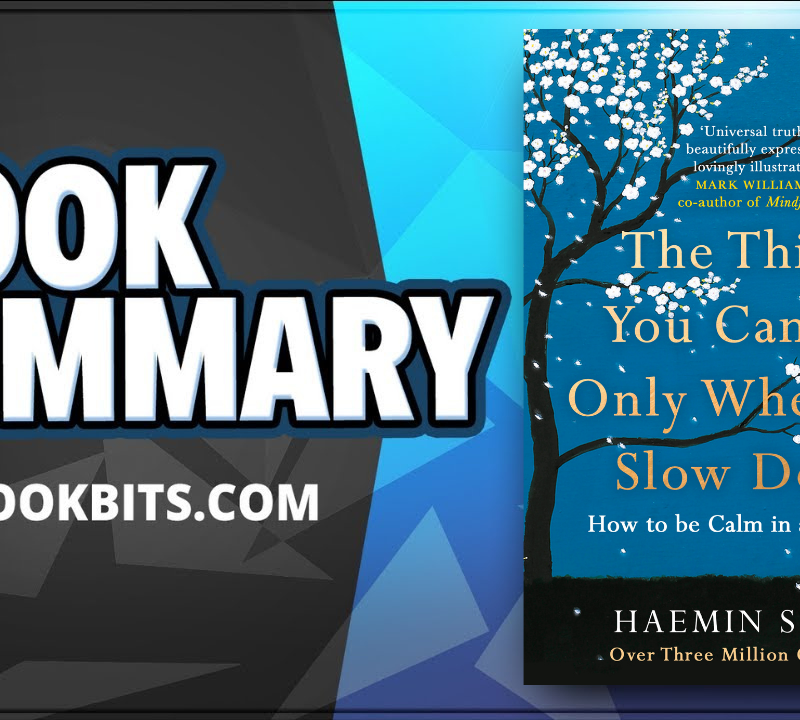GET THE 500+ BOOK SUMMARY BOX SET IN PDF & MP3 here
FOLLOW US HERE > |YouTube |Spotify | Instagram | Facebook | Newsletter | Website
The Miracle of Mindfulness by Thich Nhat Hanh
Is it accurate to say that you are inhabiting the occasion? Or on the other hand, would you say you are living tirelessly later on – continually envisioning how things will play out, longing for something better around the bend, or stressing what tomorrow will bring? Huge numbers of us have been raised with the possibility that it’s reasonable to watch out for the future, however, when does groundbreaking become dispersed reasoning?
As you’ll find in this outline, a considerable lot of us are so devoured by longing for our future or harping on our past, that we’re neglecting to experience our genuine lives by any stretch of the imagination.
So go on a voyage with Thích Nhất Hạnh to find how you can utilize the customary Buddhist routine with regards to care to correct this circumstance and get increasingly out of the present day. You’ll rediscover how to welcome the straightforward things throughout everyday life, for example, your body, your environment, and a quiet attitude.
With simple to pursue reflection practices and amazing experiences into the reasoning of Buddhism, you’ll figure out how to be aware of the present time and place, rather than living for tomorrow.
Carry on with every snapshot of your life by keeping your psyche on the job needing to be done.
During the 1940s, when Thích Nhất Hạnh was a tenderfoot priest in Vietnam, he was frequently given the unenviable assignment of remaining in the kitchen on a virus winter’s day, cleaning the dishes for around one hundred different priests. This was made considerably increasingly relentless by the way that he had no cleanser to utilize – just slag, husks of rice and solidifying water.
From that point forward, the religious community’s kitchen has been furnished with hot running water, cleanser and scourers. The amateur priests can do the dishes rapidly, and unwind with some tea to remunerate themselves a while later.
In any case, shockingly, rather than review these cutting edge redesigns as an improvement, the creator sees them as an issue for the present tenderfoot dishwashers.
Why?
Since he trusts that doing dishes just in light of the fact that you need them to be perfect is the incorrect method for moving toward this undertaking. The correct method to clean up is to clean the dishes only for cleaning the dishes.
On the off chance that we rush through the dishes like an exhausting errand to be suffered, with our brains effectively looking forward to some tea sitting tight for us when we’re done, at that point we can’t in any way, shape or form be cleaning the dishes for cleaning them. In addition, we can’t be completely alive while undertaking this errand.
It’s inconceivable for us, as we remain before the sink wishing endlessly the time, to welcome the marvel such is a reality. That is on the grounds that we’re neither cognizant nor aware of our bodies, our developments, or the musings that we’re encountering in those valuable snapshots of doing the dishes.
Rather, we’re now living, later on, sitting at the table with some tea. At the end of the day, you’re not by any stretch of the imagination cleaning the dishes. Truth be told, when you get to some tea, your mind will as of now be centered around still different issues, just faintly mindful of the flavor of the tea in your mouth. In this way, once more, you will be farther from the present, into the future, unfit truly to live even a couple of snapshots of your life.
Be that as it may, there is a superior way. The Sutra of Mindfulness, an old Buddhist content, instructs us that whatever we end up doing at some random minute, we should be completely cognizant and aware of it. How about we become familiar with this thought in the accompanying sections.
Begin to rehearse care by taking in a careful manner.
The term care implies guaranteeing your cognizance is centered around the present minute at some random time, rather than looking to the future or choosing not to move on. Albeit a significant number of us look to be careful as we approach our day by day lives, diversions definitely come thick and quick.
Rather than being allowed to concentrate on the basic fulfillment of washing dishes, we’re frequently besieged with a steady stream of individual tasks, family matters, and work duties. So in this frenzied world, how might we take part in a condition of care and just live at the time?
Amazingly, the manner by which we inhale can truly help with this objective.
When we neglect to keep our psyches on the present minute, our musings scatter and dissipate, abandoning us unfit to focus or acknowledge life. Fortunately, breathing is a viable, normal device with which we can leave scattering speechless. Think about your breath as an extension – interfacing your cognizance to the present and joining your dispersed musings with your body once more.
When you discover your contemplations scattering, grab hold of your psyche by softly taking in with a long, full breath. As you do as such, remain aware of how you’re breathing and how you’re feeling. After this long inward breath, take as much time as is needed and breathe out the majority of your lungs’ breath.
Your stomach will likewise assume a job when you inhale carefully. As your lungs top off with air, your stomach will start to rise. As you start breathing in, your stomach will begin propelling itself out, and just when your lungs are around 66% brimming with the breath will the stomach start to fall once more. This development possibly happens when we begin taking in a cognizant, careful way.
For care novices, it’s incredibly useful to rests while rehearsing cognizant relaxing. Furthermore, it’s additionally critical to abstain from overexerting yourself in your initial endeavors – it’s adequate at first to take 10 to twenty breaths like this at once. Keep in mind, your lungs likely could be frail from a lifetime of taking in a non-careful manner.
Worry doesn’t as well assume, at first, your exhalations are significantly longer than your inward breaths, and don’t take in more air than your body needs to. Step by step develop your careful breathing and, following half a month, your inward breaths and exhalations ought to be comparable long.
Give your one day in seven days to rehearsing all out carefully.
In a perfect world, one would be careful for every hour of consistently. Sadly, our lives are loaded up with duties, and care as a regular the truth isn’t simple. That is the reason Thích Nhất Hạnh suggests that you put aside something like one day seven days to commit to caring.
In spite of the fact that it may appear to be liberal to have one entire day seven days altogether devoted to your own prosperity, recall that everybody merits multi-day like this. Moreover, without cutting out this time for yourself, you’ll, in the end, lose your life to a hurricane of stress.
Does that sound beneficial? Unquestionably not.
Note that you should rehearse care around the same time every week. By participating in a week by week schedule this way, your picked day will go about as a switch that triggers your care propensity.
When you’ve settled on the multi-day, work out how to remind yourself, quickly after waking, this is your picked care day. For instance, hang a note with “care” composed on it over your bed.
After waking, take moderate, conscious breaths before gradually getting up. While doing your morning undertakings, for example, brushing your hair, focus on each activity with smoothness and tranquility.
Put aside no less than thirty minutes to unwind in the shower. Wash in a carefully moderate manner, so that a short time later you’re really revived and rejuvenated. In the wake of washing, focus on finishing family unit errands. Also, don’t simply rush through them without giving any consideration. Rather, go into the soul of this housework with no hesitance or disturbance.
On the off chance that this is one of your first entire long stretches of care, you may think that it’s accommodating to remain quiet however much as could reasonably be expected. While talking, or notwithstanding singing, isn’t prohibited, you ought to keep away from them in the event that you don’t feel ready to talk or sing in a totally careful manner.
After lunch, set aside some effort to wait over a pot of newly prepared tea. Try not to swallow it down – appreciate it gradually, treating this straightforward demonstration with love. Spend the remainder of the evening planting, in the event that you can, or essentially watching the mists pass by.
Toward night, you could peruse some Buddhist sacred texts, set aside the effort to form letters to your companions, or do whatever else pleasant that you ordinarily don’t possess energy for. Finally, do whatever it takes not to devour much at dinnertime, as it will be progressively agreeable to sit for your late night reflections with a vacant stomach.
Genuine care implies understanding the relationship between items.
A basic piece of Buddhism is understanding that specific items share a relationship. By outfitting our fixation through reflection, we can start to see this association for ourselves.
To get this, think about that information can’t have a subject without likewise having an article. For instance, we never basically hear – there’s continually something that we hear, and in case we’re furious, we’re constantly irate about something.
By rehearsing reflection, one assumes full responsibility for her brain and body, and in this way can completely focus on this reliance among subject and article. For example, through being aware of our breaths, we see how breath and psyche are interconnected, and in this way see how, as it were, a brain is a breath. Essentially, to be aware of our bodies is to comprehend the interconnectedness of body and mind, and to see that mind is a body.
Critically, we can likewise expand our care past our breathing and our bodies to objects that are outer to us. When we do this, our insight into these outside articles winds up interconnected as well and indistinguishable from our brains. Hence, any thought of articles’ association additionally turns into our very own consideration psyches, and this reliance implies that every one of the mind’s items is likewise disapproved of itself.
The mind’s articles, in Buddhism, are called dharmas. These dharmas are comprehensively arranged into five separate classifications, otherwise called the five totals: emotions, discernments, physical and substantial structures, mental procedures and awareness. Critically, however, “cognizance” is the establishment of the other four’s presence.
To think about the idea of reliance is to take a profound, thoughtful investigate every dharma, in this manner understanding the genuine idea of each, and subsequently in the end observing every one of them as a feature of a more noteworthy entire such is life – and, at last, understanding that this incredible entire of the truth is eventually resolute, with each bit of it unfit to exist free from the others.
The underlying article we should begin considering when we think is our own individual.
For sure, we ourselves are a gathering of these totals. To start this thought, we have to turn out to be aware of the nearness of every one of these five dharmas inside us. We ought to watch the five objects of the brain until we plainly observe that they’re all firmly associated with the world outside of us, and hence comprehend that we – which means this get together of the five dharmas – can’t exist without the remainder of the world either.
Through this, we can eventually see how we’re simply a piece of the more noteworthy universe.
When you comprehend this idea of association, you’re en route towards separating the boundaries that limited our impression of the world. When you crush these boundaries, you’re significantly nearer to epitomizing Buddhism.
To rehearse care, we should be cautious and completely wakeful.
When we take a seat in a condition of care, our brains and bodies might be totally loose and absolutely settled. In any case, don’t confuse this situation with something it’s definitely not. This kind of unwinding is altogether different from the kind of half-cognizant, lazy perspective that emerges from snoozing or resting.
Basically resting or snoozing shares nothing at all practically speaking with care. Why? Since when we rest, our mind enters a diminish cavern, but a loosening up one. In any case, when we are careful, we are relaxing yet additionally completely alert and wide wakeful.
Think about that when we rest or rest, we are dodging reality for some time. Be that as it may, when we ponder and take part in care, we’re not looking to avoid reality, yet to experience it in a peaceful manner. Therefore, one who is being careful should be no less alarm than one who is driving a vehicle. Why?
Since similarly as a tired driver will presumably have a mishap, a caring expert who isn’t completely conscious will probably endure dispersed contemplations, just as absent-mindedness.
Along these lines, when we practice care, we should plan to be as cautious as a carnival entertainer navigating a precarious situation – approaching our exercises realizing that lost center could result in a long fall. Or on the other hand, we should attempt to be as a tiger, going forward with delicate yet intentional advances, alert and tranquil in the meantime.
Note that we have to get this kind of cautiousness before we will probably encounter our total arousing.
For care specialists who are toward the start of their adventures toward genuine arousing, the creator prescribes a specific technique: that of unadulterated acknowledgment.
This implies perceiving any considerations or emotions you my understanding –, for example, outrage or aggravation – in a soul of inviting acknowledgment. Rather than qualities, for example, sympathy more exceedingly than desire, treat the two sentiments as carefully equivalent in worth. Why? Since they are both a piece of you
Keep in mind, while rehearsing care, no item is indicated more consideration than some other. In this way, outrage, sympathy, a teacup or an almond tree is each sacrosanct.
So try to treat your additionally testing sentiments, for example, torment and contempt, with tenderness and regard. Try not to oppose them. Rather, live in harmony with them, as you think about their association with different articles throughout your life.
Begin thinking by envisioning yourself as a rock and an infant.
With regards to meditation, there is an abundance of various activities and strategies you can use to help you with your approach to care. In spite of the fact that these activities are very straightforward, they are the nuts and bolts that you should ace before proceeding onward to further developed methodologies.
The main exercise is known as a stone.
Sit as still as could be allowed and take moderate and careful breaths. Presently, envision that you’re a rock, sinking through the unmistakable waters of a stream. As you sink, you make no endeavor to control the developments you make; rather, you are just falling toward a specific spot on the delicate riverbed sand. This spot is one of complete rest.
Ruminate over yourself as this stone until your body and your brain is in a condition of all-out quiet – at the end of the day until you have achieved that spot of lay on the riverbed. It might take around fifteen minutes for you to achieve this profound quietness. When you have accomplished it, keep this condition of joy and harmony for an entire thirty minutes, as you watch your relaxing.
While you are in this state, there is nothing you will probably consider in regards to either the future or the past that can tear you out of your present quietness. Existent in this ecstatic present is the whole universe, and nothing can divert you from your tranquility – not in any case your desire to spare mankind, or your desire to be a Buddha.
As you ruminate, comprehend that turning into a Buddha and sparing mankind is just conceivable after you accomplish a condition of unadulterated quietness in the present minute.
Another supportive exercise includes imagining the snapshot of your introduction to the world.
Sit in the lotus position and set aside some effort to wind up aware of your relaxing. At that point, center your fixation around the snapshot of your own introduction to the world. Ponder the way that your introduction to the world likewise denoted the beginning stage of your possible demise. Comprehend that when life shows does as well, demise and that we can’t have one without the other.
See that demise and life are each other’s establishments and that you are, actually, your life and your passing at the same time. Thusly, life and demise are not foes, yet essentially two distinct components of an indistinguishable reality. When we understand this, we gain the bravery to defeat our dread of death.
Meditation is a significant advance en route to a careful life. By empowering us to loosen up our bodies completely, reflection gives the establishment of grabbing hold of our musings, observations, and sentiments as well. In this manner, through contemplation, we can guide ourselves toward care and accomplish serenity of the brain too.













